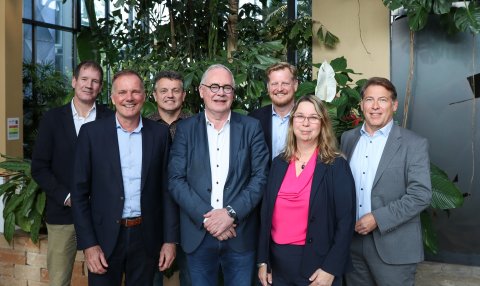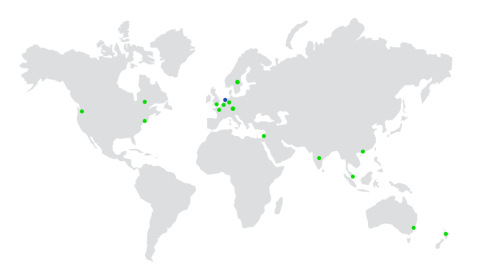
In my previous blog, I talked about the global elementary shift that is taking place in how we think about work, and how it affects people and workplaces. Unmistakably, this evolution of the workplace also impacts processes that people (re)consider when managing life balance, and the way digital developments can support us in catering to the requirements our workforce have for the office.
Process: Commute or no commute, that is the question
In order to make cities liveable, there is a strong desire for people to mix formal and informal functions. As a result, office space designers and planners will need to be braver and mix spaces and functionalities. After having had no commuting time for almost two years, commuting has become a serious topic for people. Additionally, they are more conscious of when to go and when to work from home. The function of offices has become more social, employees come in specifically to collaborate and socialise. Social cohesion has been found to be essential for effective teamwork, and being able to socialise face-to-face is valuable for providing socially cohesive foundations for hybrid working.
Office developers now extend their view to consider the user journey, even beyond the office premises. Human-centred technology will become more common in the next few years and can cater to our transformed needs. Smart building technology can play a big role in improving the quality of the office visit. Consider for example air sensors measuring the cleanliness and quality of the air, which can eliminate any concerns about hygiene for employees. As a result of inconsistent building occupancy, many companies have already switched to digital, on-demand food ordering instead of offering the lunch buffets we were used to before the pandemic. A user-centric view is key for the success of the office space of the future, as the office has become the new social place after COVID.
Tools: Digitisation makes us human
Great workspaces maintain a healthy balance between cultural, social, economic, environmental and technical aspects. Digital developments, and AI in particular, aim to make our presence in office buildings safer, easier and more efficient. Smart cameras and sensors can monitor human presence in the building and adapt energy usage as in heating and lighting accordingly. In addition to serving a plethora of other purposes, digital twins of office buildings allow visitors or new employees to navigate their way through the building before actually getting there. People can explore their route or check out the layout before they visit for a job interview or customer visit. And while finding the right staff to welcome them in the office building might sometimes be difficult, a digital assistant can do these tasks while maintaining a (semi-human) smile on their face.
Hybrid working is here to stay. And it forces companies to rethink their relationship with their employees. If there is one thing they should realise, it is to think of them as people, no longer as employees. It is important to nurture and retain talent in companies, and thus cater for individual needs. The mental health of the workforce is key, and our offices serve a different function to before. No wonder that the lines between Facility Management and Human Resources are blurring, the fields of expertise are more connected than ever these days.
When companies are able to facilitate meaningful connections for their employees, they are well on their way to a successful balance. Next generations will have new demands, and the screenagers of generation Alpha are about to enter the workforce. While 73% think technology can never fully replace the human mind (source: PWC Workforce of the future report, 2018), major digital developments will affect all companies and their business.
So the question is not whether smart technology will improve life as we know it. We already know it will. The question is whether we are smart enough to keep up…




















